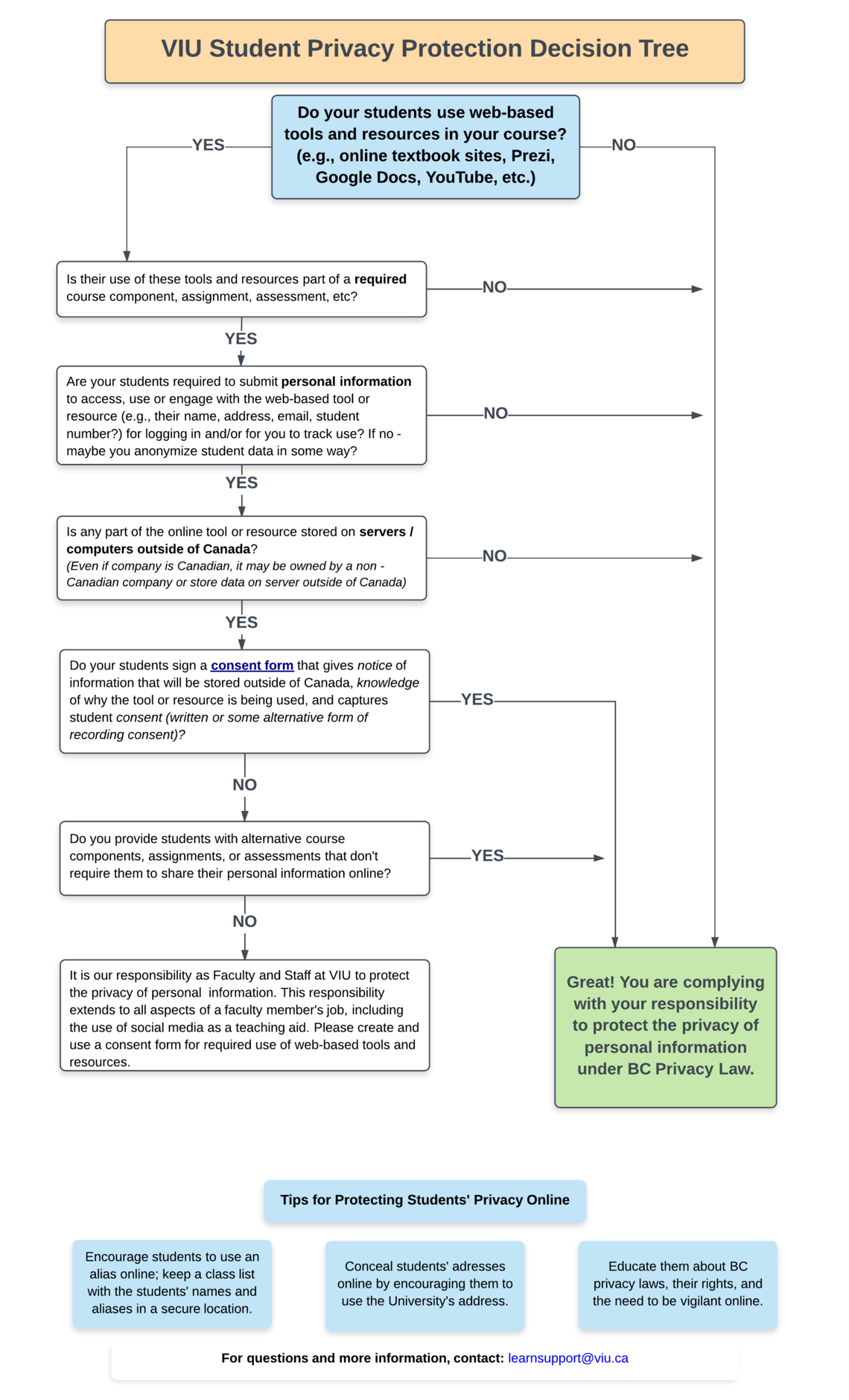In our first lesson, we were introduced to BC’s Freedom of Information and Protection of Privacy Act (FIPPA). I will be honest, this is the first time I have ever heard of FIPPA. The idea of protecting people’s personal information and consulting with people before allowing any identifiable information to be publicized online or stored internationally makes sense. However, at the school where I most recently worked in Indonesia, the principles behind FIPPA were not even on the radar. Many of the teachers communicated with parents or students through gmail accounts, the school posted videos and pictures of students and school community members on the school website, Facebook page and on YouTube. Teachers were also encouraged to make class communication groups using apps such as WhatsApp. So, while I understand the reasoning for FIPPA, I am also now feeling a bit bogged down with the responsibility it puts on my shoulders as a teacher.
I am also a little concerned that I don’t fully grasp all the finer details of FIPPA and how it will apply to my future classroom. In fact, after talking to my mother, a kindergarten teacher, and some of her colleagues, I found few teachers who were able to tell me much more beyond ‘don’t put children’s faces online’. I was shocked and a bit disappointed that teachers weren’t receiving more support and guidance in this area. So, in an effort to inform myself, I have read and re-read the ‘Cloud Computing Guidelines for Public Bodies’ document created by the Office of the Information and Privacy Commissioner but was still feeling a bit hazy on the details so I tried to find some other people’s interpretations of FIPPA to see if anything would resonate. Here are three of the most helpful resources I found:
- This following link is a slide show that addresses why FIPPA is important in public schools. It highlights some key information and includes some good visuals that give you an idea of where information is being stored, and to what scope FIPPA applies: Privacy, FIPPA & Tech in Schools: What families & teachers need to know
- The following picture and link were taken from the Vancouver Island University. The information is tailored to a university environment, but I think much of what is said could be easily adapted to a K-12 class. I also liked that they gave specific information related to specific tools or situations that come up in a classroom: Maintaining Privacy While Supporting Innovation

- Although it may not be the most invigorating video, I found the following YouTube video to be a good summary of how technology is seeping into classrooms and how FIPPA might affect which and how technologies are used. I also liked that it gave a bit of background and reasoning for FIPPA.
Leave a Reply